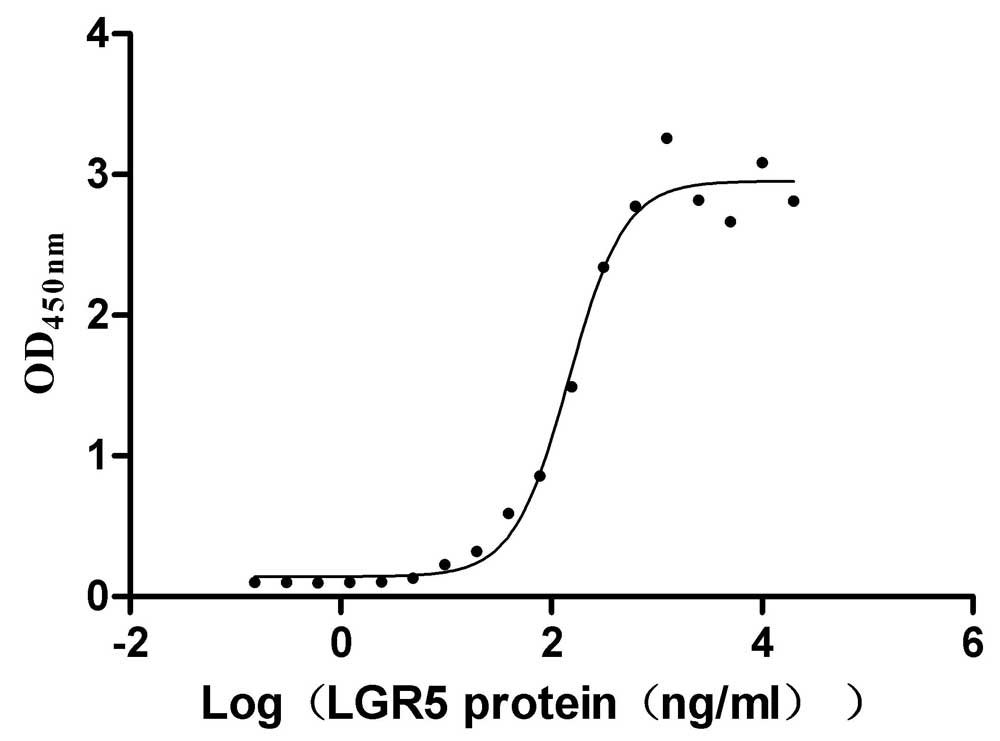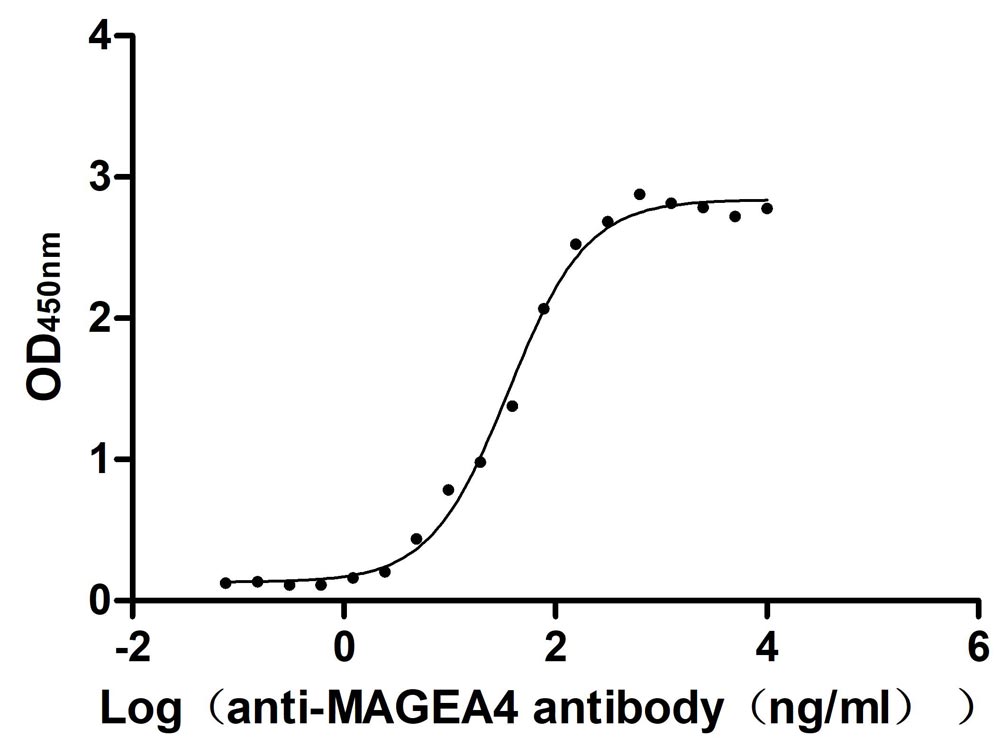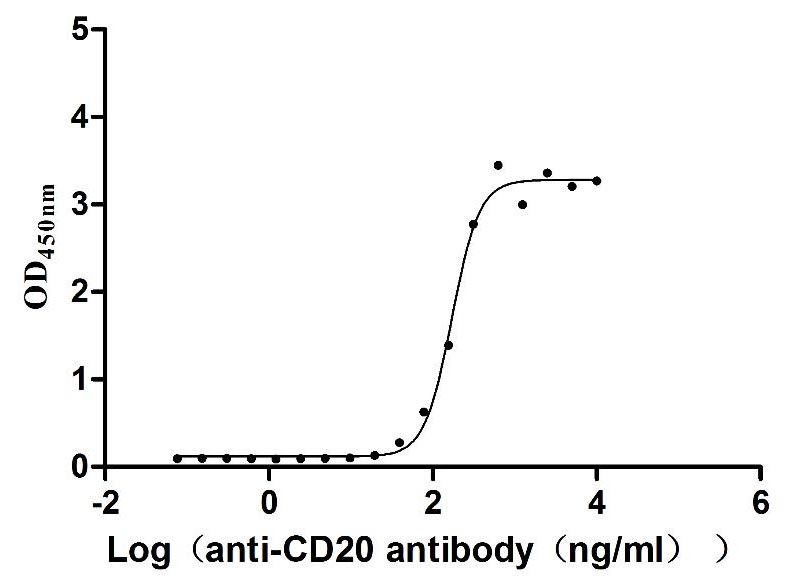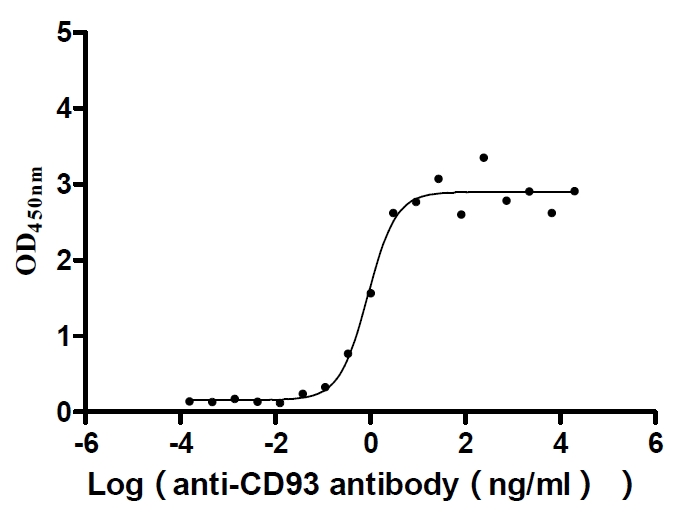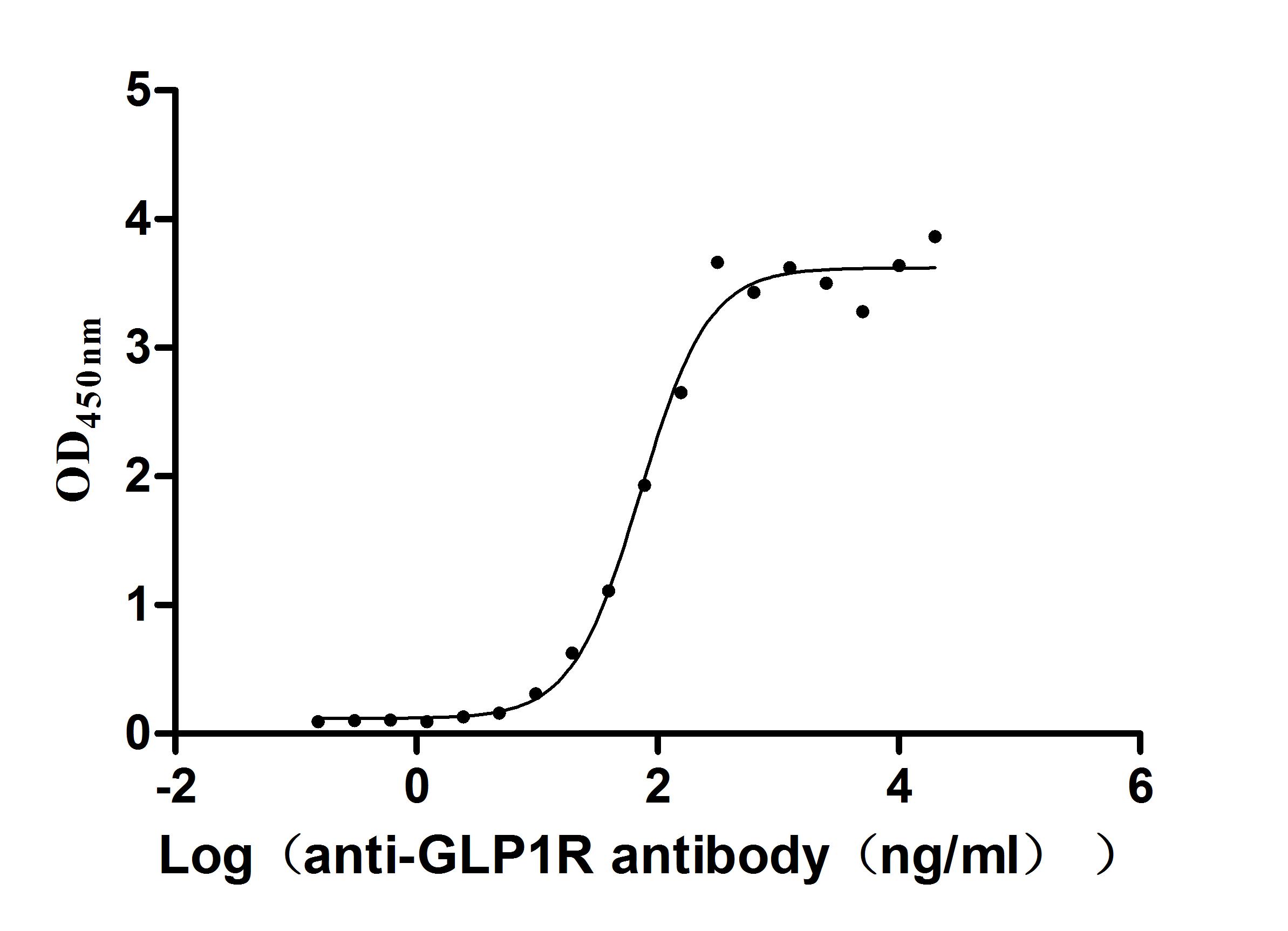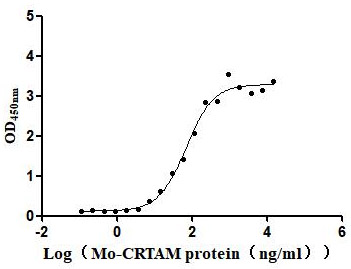Recombinant Human Remodeling and spacing factor 1 (RSF1), partial
-
中文名稱:人RSF1重組蛋白
-
貨號(hào):CSB-YP020540HU
-
規(guī)格:
-
來(lái)源:Yeast
-
其他:
-
中文名稱:人RSF1重組蛋白
-
貨號(hào):CSB-EP020540HU
-
規(guī)格:
-
來(lái)源:E.coli
-
其他:
-
中文名稱:人RSF1重組蛋白
-
貨號(hào):CSB-EP020540HU-B
-
規(guī)格:
-
來(lái)源:E.coli
-
共軛:Avi-tag Biotinylated
E. coli biotin ligase (BirA) is highly specific in covalently attaching biotin to the 15 amino acid AviTag peptide. This recombinant protein was biotinylated in vivo by AviTag-BirA technology, which method is BriA catalyzes amide linkage between the biotin and the specific lysine of the AviTag.
-
其他:
-
中文名稱:人RSF1重組蛋白
-
貨號(hào):CSB-BP020540HU
-
規(guī)格:
-
來(lái)源:Baculovirus
-
其他:
-
中文名稱:人RSF1重組蛋白
-
貨號(hào):CSB-MP020540HU
-
規(guī)格:
-
來(lái)源:Mammalian cell
-
其他:
產(chǎn)品詳情
-
純度:>85% (SDS-PAGE)
-
基因名:RSF1
-
Uniprot No.:
-
別名:RSF1; HBXAP; XAP8; Remodeling and spacing factor 1; Rsf-1; HBV pX-associated protein 8; Hepatitis B virus X-associated protein; p325 subunit of RSF chromatin-remodeling complex
-
種屬:Homo sapiens (Human)
-
蛋白長(zhǎng)度:Partial
-
蛋白標(biāo)簽:Tag?type?will?be?determined?during?the?manufacturing?process.
The tag type will be determined during production process. If you have specified tag type, please tell us and we will develop the specified tag preferentially. -
產(chǎn)品提供形式:Lyophilized powder
Note: We will preferentially ship the format that we have in stock, however, if you have any special requirement for the format, please remark your requirement when placing the order, we will prepare according to your demand. -
復(fù)溶:We recommend that this vial be briefly centrifuged prior to opening to bring the contents to the bottom. Please reconstitute protein in deionized sterile water to a concentration of 0.1-1.0 mg/mL.We recommend to add 5-50% of glycerol (final concentration) and aliquot for long-term storage at -20℃/-80℃. Our default final concentration of glycerol is 50%. Customers could use it as reference.
-
儲(chǔ)存條件:Store at -20°C/-80°C upon receipt, aliquoting is necessary for mutiple use. Avoid repeated freeze-thaw cycles.
-
保質(zhì)期:The shelf life is related to many factors, storage state, buffer ingredients, storage temperature and the stability of the protein itself.
Generally, the shelf life of liquid form is 6 months at -20°C/-80°C. The shelf life of lyophilized form is 12 months at -20°C/-80°C. -
貨期:Delivery time may differ from different purchasing way or location, please kindly consult your local distributors for specific delivery time.Note: All of our proteins are default shipped with normal blue ice packs, if you request to ship with dry ice, please communicate with us in advance and extra fees will be charged.
-
注意事項(xiàng):Repeated freezing and thawing is not recommended. Store working aliquots at 4°C for up to one week.
-
Datasheet :Please contact us to get it.
靶點(diǎn)詳情
-
功能:Regulatory subunit of the ATP-dependent RSF-1 and RSF-5 ISWI chromatin-remodeling complexes, which form ordered nucleosome arrays on chromatin and facilitate access to DNA during DNA-templated processes such as DNA replication, transcription, and repair. Binds to core histones together with SMARCA5, and is required for the assembly of regular nucleosome arrays by the RSF-5 ISWI chromatin-remodeling complex. Directly stimulates the ATPase activity of SMARCA1 and SMARCA5 in the RSF-1 and RSF-5 ISWI chromatin-remodeling complexes, respectively. The RSF-1 ISWI chromatin remodeling complex has a lower ATP hydrolysis rate than the RSF-5 ISWI chromatin-remodeling complex. The complexes do not have the ability to slide mononucleosomes to the center of a DNA template. Facilitates transcription of hepatitis B virus (HBV) genes by the pX transcription activator. In case of infection by HBV, together with pX, it represses TNF-alpha induced NF-kappa-B transcription activation. Represses transcription when artificially recruited to chromatin by fusion to a heterogeneous DNA binding domain.
-
基因功能參考文獻(xiàn):
- Remodeling and spacing factor 1 (RSF1) stability is regulated at the post-translational level upon DNA damage. PMID: 29385673
- Results show that RSF1 is highly expressed in bladder cancer tissues (BC) and is negatively correlated with miR-154 levels. RSF1 is a direct target by miR-154 in BC cells. There was however no significant effect on RSF1 mRNA levels, which may be due to incomplete complementation with the 3'-UTR. PMID: 29048677
- In osteosarcoma patients, RSF1 was increased and associated with advanced clinical features and poor overall survival. PMID: 28843909
- these data identify RSF1 as a H2Aub reader that contributes to H2Aub-mediated gene silencing by maintaining a stable nucleosome pattern at promoter regions. PMID: 28855339
- Rsf-1 was highly expressed in H460 and H1299 cells. Rsf-1 knockout caused cell arrest at the G1 phase, increased cell apoptosis, and decreased migration and cell proliferation. Rsf-1 knockout increased the inhibition of cell proliferation, the reduction in cell migration and the augment in cell apoptosis in paclitaxel treated H460 and H1299 cells. PMID: 29258089
- Rsf-1 was overexpressed in lung cancer and associated with poor survival. Rsf-1 regulated cell invasion through MMP2 and NF-kappaB pathway. PMID: 28289901
- essential centromeric component that recruits PLK1 to kinetochores and plays a crucial role in faithful cell division PMID: 26259146
- High-expression of Rsf-1 is associated with pathologic subtypes of breast cancer, aggressive phenotype, p53 positive and poor clinical outcome, which confers tumor aggressiveness through chromatin remodeling. PMID: 25337201
- RSF1 facilitates DNA double-strand break repair by recruiting centromeric and Fanconi Anaemia proteins. PMID: 24800743
- Chromatin remodeler Rsf-1 is a guard in DNA damage checkpoints and homologous recombination repair. PMID: 24351651
- RSF1 plays a critical role in DNA double stranded break repair, a process in which it acts independently from its binding partner SMARCA5. PMID: 25111480
- Rsf-1 contributes to hepatocellular carcinoma cell growth through regulation of cell cycle proteins. PMID: 24798976
- Rsf-1 contributes to prostate cancer cell growth and invasion, which makes it a candidate therapeutic target. PMID: 24584698
- Remodeling and spacing factor 1 promotes the assembly of CENP-S and CENP-X at damaged chromatin and regulates DSB repair by homologous recombination and non-homologous end-joining. PMID: 23974106
- Serum HBXAP DNA from 65 lung cancer patients and 20 healthy controls was quantified using real-time fluorescent quantitative polymerase chain reaction. PMID: 23456648
- Rsf-1 increases the frequency of abnormal mitotic events by disrupting hBubR1-Cdc20 interactions. PMID: 23536579
- Rsf-1 interacts and collaborates with cyclin E1 in neoplastic transformation and TP53 mutations are a prerequisite for tumour-promoting functions of the RSF/cyclin E1 complex. PMID: 23378270
- High RSF-1 expression correlates with poor prognosis in patients with gastric adenocarcinoma. PMID: 22977663
- Rsf-1 is overexpressed in colon cancers and contributes to malignant cell growth by cyclin E and phospho-Rb modulation, which makes Rsf-1 a candidate therapeutic target in colon cancer. PMID: 22528946
- Overexpression of Rsf-1 is associated with higher tumour stage and poorer clinical outcome in urinary bladder urothelial carcinoma. PMID: 22685262
- High-expression of Rsf-1 is associated with poor therapeutic response and adverse outcome in rectal cancer patients treated with neoadjuvant chemoradiotherapy. PMID: 22569540
- Rsf-1 is overexpressed in non-small cell lung cancers and contributes to malignant cell growth by cyclin D1 and ERK modulation. PMID: 22387541
- Rsf-1 overexpression is common and is associated with adverse prognosticators and therapeutic response in nasopharyngeal carcinoma. PMID: 22081787
- Rsf-1 overexpression is common and associated with adverse prognosticators in gallbladder carcinomas. PMID: 21995635
- our results suggest that RSF-1 up-regulation is associated with several clinicopathological features of disease aggressiveness in oral squamous cell carcinoma PMID: 21514451
- a higher expression level of Rsf-1 is associated with advanced clinical stage and lymph node metastasis in ovarian clear-cell carcinoma. PMID: 21131837
- Rsf-1, a chromatin remodeling protein, induces DNA damage and promotes genomic instability PMID: 20923775
- Suggest that overexpression of Rsf-1, cyclin E and FASN occurs early in ovarian tumor progression. PMID: 20228782
- HBXAP represses NF-kappaB-mediated gene activation in a dose-dependent manner. Our results showed that HBXAP and NF-kappaB colocalize to the nuclear matrix with specific physical interaction between them. PMID: 15242768
- An important role of Rsf-1 amplification in ovarian cancer was shown. PMID: 16172393
- Putative oncogene in ovarian cancer. PMID: 16418735
- Rsf-1 expression is down-regulated in breast carcinoma cells in effusions compared with the solid counterparts and has no prognostic role at this anatomic site. PMID: 18289639
- In an ovarian carcinoma cohort, RSF1 was amplified in 12% of the cases. It was correlated with serous histology and a worse prognosis. The 11q13 amplicon in ovarian cancer is likely driven by a cassette of genes rather than by a single oncogene. PMID: 18314909
- findings suggest that interaction between Rsf-1 and hSNF2H may define a survival signal in those tumors overexpressing Rsf-1 PMID: 18519663
- Rsf-1 is the major gene within the 11q13.5 amplicon that contributes to paclitaxel resistance in ovarian cancers. PMID: 19190325
- continued expression of the ATX transgenes can contribute to hepatocyte transformation but are not sufficient to trigger neoplastic changes in the liver PMID: 19475691
顯示更多
收起更多
-
亞細(xì)胞定位:Nucleus.
-
組織特異性:Ubiquitously expressed. Highly expressed in the heart, skeletal muscle, kidney and placenta. Expressed at low levels in the brain and colon.
-
數(shù)據(jù)庫(kù)鏈接:
Most popular with customers
-
Recombinant Human CD226 antigen (CD226), partial (Active)
Express system: Mammalian cell
Species: Homo sapiens (Human)
-
Recombinant Human Claudin-18.2 (CLDN18.2)-VLPs (Active)
Express system: Mammalian cell
Species: Homo sapiens (Human)
-
Recombinant Human R-spondin-1 (RSPO1), partial (Active)
Express system: Mammalian cell
Species: Homo sapiens (Human)
-
Recombinant Human Melanoma-associated antigen 4 (MAGEA4) (Active)
Express system: Mammalian cell
Species: Homo sapiens (Human)
-
Recombinant Dog B-lymphocyte antigen CD20 (MS4A1)-VLPs (Active)
Express system: Mammalian cell
Species: Canis lupus familiaris (Dog) (Canis familiaris)
-
Recombinant Human Complement component C1q receptor (CD93), partial (Active)
Express system: Mammalian cell
Species: Homo sapiens (Human)
-
Recombinant Human Glucagon-like peptide 1 receptor (GLP1R), partial (Active)
Express system: Mammalian cell
Species: Homo sapiens (Human)
-
Recombinant Mouse Cell adhesion molecule 1 (Cadm1), partial (Active)
Express system: Mammalian cell
Species: Mus musculus (Mouse)



-AC1.jpg)
